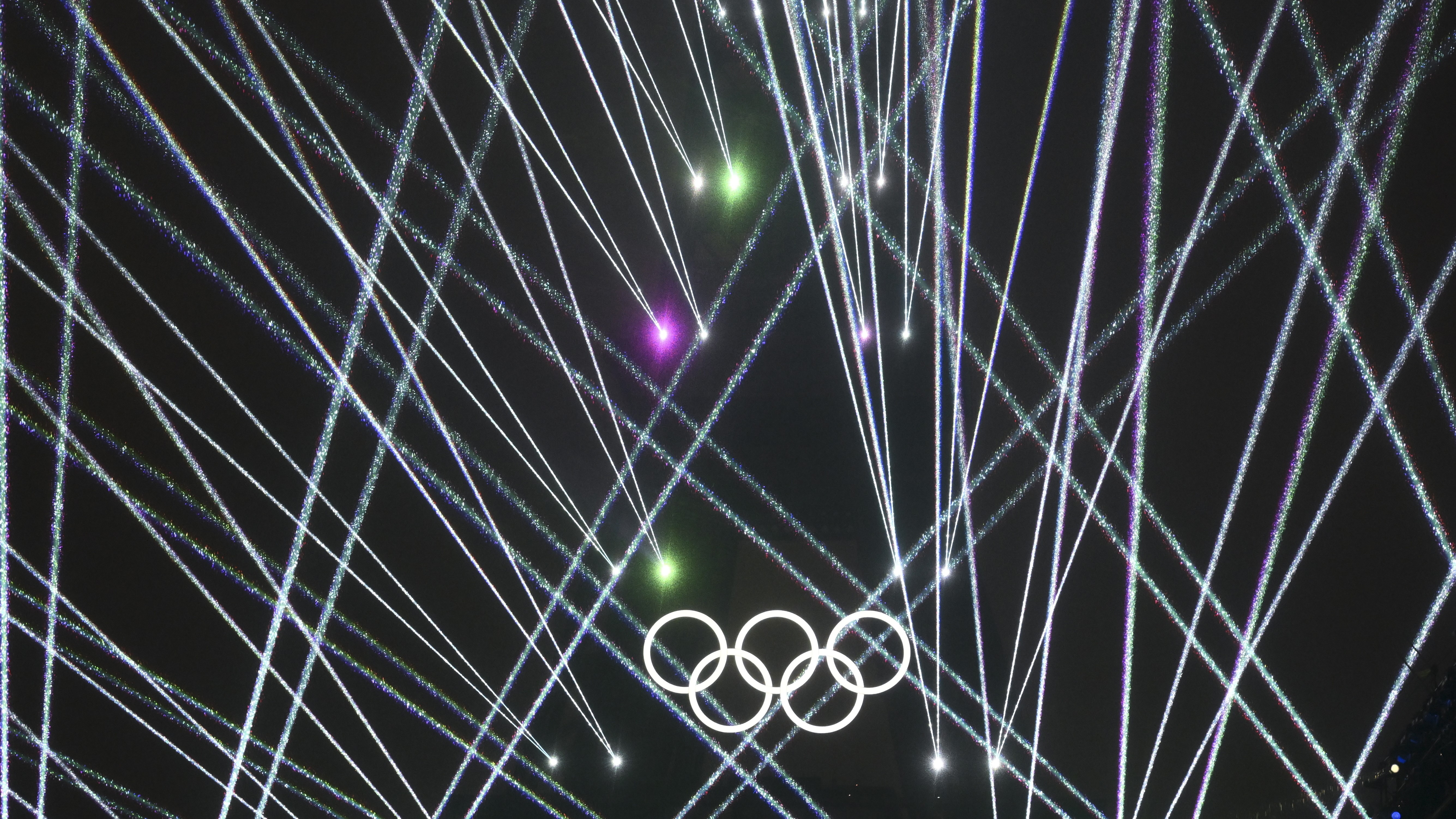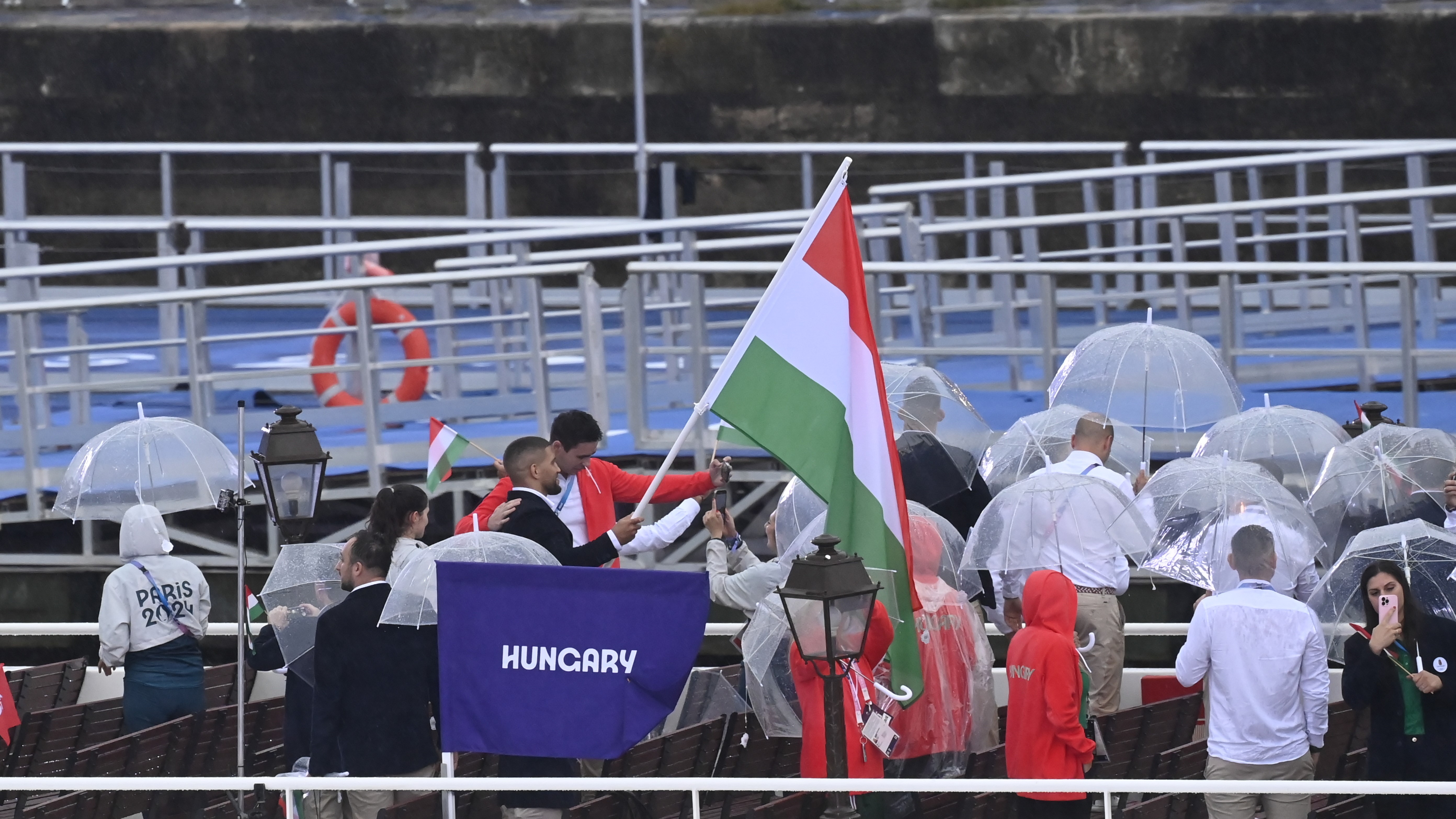For the first time in four years, Celine Dion, who suffers from a severe autoimmune disease, appeared in public at the opening of the Olympic Games in Paris.
33rd. Friday, the opening of the Summer Olympic Games in Paris. The ceremony included many special events, and this was the first time in the history of the Olympic Games that competitors were transported by boat.
On the nearly six-kilometre stretch of the Seine, 85 boats cruised the waters from the Pont de Austerlitz to the Pont de Jena, touching landmarks such as Notre Dame, the Louvre or the Musée d'Orsay.
The cultural part of the show took place on stages along the river and on bridges, much of it in the rain. Thomas Joly, the 42-year-old actor and artistic director of the show, wanted everyone to feel like an actor after the show. Nearly 2,000 dancers and actors presented a dozen tableaux that celebrated athletes from all over the world and told a story of what France, a country of diversity, is like. The choreography and elements of the show were rehearsed for 200 days.
The opening, coloured with extravagant elements, focused on “diversity” and “otherness”, and in presenting France, Joly bravely continues with the clichés, because in his opinion they also highlight deeper connections. In the show, he sought to follow the French approach that can be summed up as: be different from everything else, be bold and daring.

They opened the 33rd Olympic Games in Paris (Photo: Zsolt Czeglédi/MTI)
According to tradition, the Greeks started the parade of athletes' boats, followed by the other teams based on the French ABC, so Hungary took 83rd place in the ranking. A total of 63 Hungarians – athletes, sports directors and coaches – boarded the same boat with the Hondurans and the Hong Kongers. The Hungarian flag was waved by Blanka Budi Biro – the first Hungarian flag bearer of handball – and juggler Krysztian Tóth. The competing runners waved enthusiastically from the boats despite the rain.

Christian Toth plays with the national flag on the ship carrying the Hungarian team on the River Seine during the opening ceremony of the 2024 Summer Olympics in Paris on July 26, 2024. (Photo: MTI/Tamás Kovács)
At the beginning of the program lady gaga He sang Zizi Jeanmaire's “Mon Truc En Plumes” on the sidewalk amidst a circle of dancers, and later the most famous French singer Aya Nakamura entertained the audience, and the pianist Sofiane Bamar accompanied the pop singer Juliette Armant who performed John Lennon's “Imagine”.
The Olympic flame approached its destination in the context of a story created during the program elements. Zinedine Zidane appeared at the beginning of the journey, then the Phantom of the Opera carried the flame through different parts of the city, while French culture came to life in the scenes.
Tony Estanguet, President of the Organizing Committee, gave a welcoming speech, and then Thomas Bach, President of the International Olympic Committee, said that it would be difficult to find a better place to celebrate the Olympic ideal than Paris, where the founder of the IOC, Pierre de Coubertin, was born. He stressed that the Olympic Games in Paris will be the most youthful, inclusive, urban and sustainable to date, and that gender equality will be achieved for the first time. He stressed that Olympians show solidarity with each other, and athletes from all over the world demonstrate what people can do together.
According to tradition, the games were opened by President Emmanuel Macron.
Zinedine Zidane retrieved the torch from the ghost and handed it to Spain's Rafael Nadal, who took it on a motorboat near the Tuileries Gardens with Serena Williams, Nadia Comaneci and Carl Lewis. There, Amelie Mauresmo took possession of it, and in the courtyard of the Louvre he joined Tony Parker, before continuing the run with three paralympic athletes. Later, other Olympic champions brought the torch together to the end of its journey, with three-time Olympic champion Marie-José Perec and juggler Teddy Riner lighting the flame, which rose into the air in a hot air balloon.
At the end of the party Celine Dion – who has not performed since 2020 due to her autoimmune disease – Edith Piaf Hymn to Love He charmed the audience with his song from the Eiffel Tower.
45,000 gendarmes and policemen supervised the smooth running of the ceremony.
The Paris Olympics, which will run until August 11, will be attended by 10,714 athletes from 206 countries, with 15 Russian and 16 Belarusian Olympians competing in neutral colours. Participants will compete in 329 events in 32 sports, including 157 for men, 151 for women and 21 mixed events that will earn medals. There are 180 Hungarian teams interested in 21 sports.







